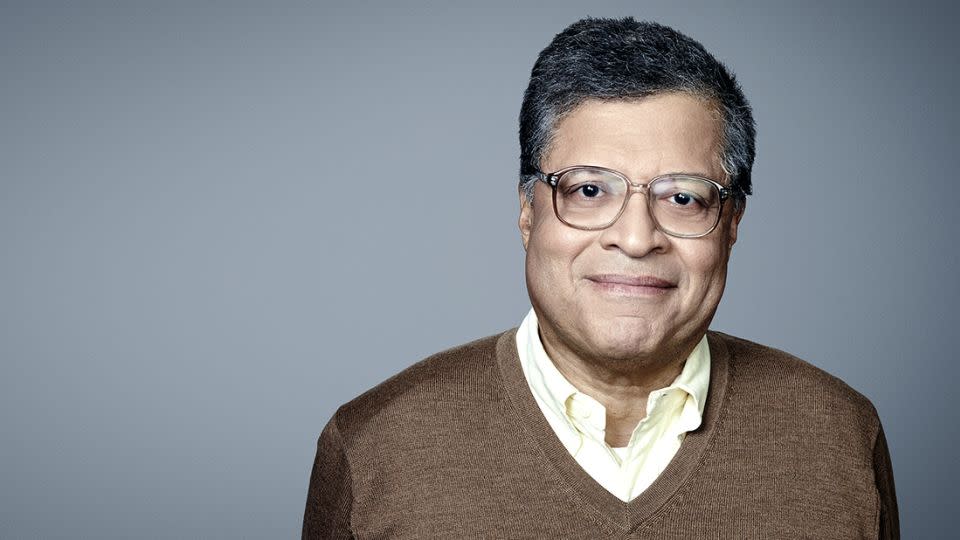Opinion: Reformed Golden Globes made for everything but a better show
Editor’s Note: Gene Seymour is a critic who has written about music, movies and culture for The New York Times, Newsday, Entertainment Weekly and The Washington Post. Follow him on Twitter @GeneSeymour. The opinions expressed in this commentary are solely those of the author. View more opinion on CNN.
A handful of conflicting impulses were in play during Sunday evening’s 81st running of the Golden Globe Awards.

The first, of course, is how much to take them seriously, a dilemma we’ve been struggling with for years. We’ll get back to that later. For now, we can say for sure what made this year’s edition different.
Above all, there was the timing: With a hard-won labor peace finally settling over Hollywood and its worldwide annexes, the strike-delayed TV season is poised to finally begin in another month.
So, Globes 2024 not only fulfilled its annual mandate to provide added giddyap to the movie awards season, but in essence also rebooted the whole picture-making business, whether on big or small screens.
These Globes marked the unofficial consummation of last summer’s “Barbenheimer”: the big-studio portmanteau-inflected campaign using “Oppenheimer” and “Barbie” to let the world know it was finally safe to go back to the theaters two years after a worldwide pandemic essentially locked them down.
Maybe it was at least inevitable, then, that the big winners of this year’s Globes were…envelope please…”Oppenheimer” and “Barbie.”
The three-hour biopic of J. Robert Oppenheimer, the ill-starred developer of the atomic bomb, won for best motion picture drama, along with awards for director (Christopher Nolan), best actor drama (Cillian Murphy), best male actor in a supporting role (Robert Downey Jr.) and best original score (Ludwig Göransson).
The take for “Barbie” wasn’t as huge. But in addition to winning best original song (for Billie Eilish and Finneas’s “What Was I Made For?”), writer-director Greta Gerwig’s pastel-saturated “meta” musical comedy about Mattel’s iconic fashion-doll phenomenon made history Sunday by winning the Globes’ inaugural cinematic and box office achievement prize, representing the movie industry’s own dream-like synthesis of critical and public acclaim. (The distributor of “Barbie” and CNN share a parent company, Warner Bros. Discovery.)
The way movies are made, exhibited and distributed these days, this award is what the Oscars would like to morph themselves into, if they only could, making its advent at the Globes a prototype of Things to Come.
For the record, “Barbie,” the highest-grossing studio feature in the storied history of Warner Bros. Pictures with a $1.4 billion box office take worldwide, beat out such sundry contenders in this category as “Guardians of the Galaxy Vol. 3,” “John Wick, Chapter 4,” “Spider-Man: Across the Spider-Verse” and “Taylor Swift: The Eras Tour.” (Yea, verily, Swifties! She is indeed Everywhere and was at the awards ceremony, too.)
If the Globes are to be given credence as harbingers for Academy Awards, then “Oppenheimer” would seem to have an edge – that is, unless you neglect the other big-screen winners Sunday, including “Poor Things,” the Victorian period farce that won for best comedy or musical feature as well as a best female actor in comedy or musical prize for its star, Emma Stone.
Meanwhile, Alexander Payne’s prep school comedy “The Holdovers,” drew a best male actor in comedy or musical award for its star Paul Giamatti and a best female actor in a supporting role award for Da’Vine Joy Randolph.
Rounding out the motion picture acting prizes was the widely anticipated and historic award as best female actor in a drama to Lily Gladstone as a besieged Osage wife in Martin Scorsese’s “Killers of the Flower Moon.” In her acceptance speech, part of which was delivered in her native Blackfeet tribal language, Gladstone, the first indigenous woman to win the Globe, said she was accepting it on behalf of “every little rez kid, every little urban kid, every little Native kid who has a dream, who is seeing themselves represented and our stories told by ourselves in our own words with tremendous allies and tremendous trust with and from each other.”
It was a stately moment very much in keeping with the reformist spirit of this year’s Globes, which made sweeping changes in their operations that included phasing out the scandal-plagued Hollywood Foreign Press Association and bringing greater diversity to the voting process.
Which made for everything except a better show, though one admits not missing the annual presentation of the Cecil B. DeMille or Carol Burnett lifetime achievement awards. These have tended to slow the program’s roll, in return for not much beyond some windy platitudes, adding to the longtime suspicion that the Globes held little real significance beyond their placement before Oscar nominations were announced.
What we got instead were the ups and downs we expect from awards shows, from the somewhat flat opening monologue from comedian and host Jo Koy to some often-charming impromptu speeches from winners. The best, to my mind, came from Ayo Edebiri, who won best female actor in a comedy or musical TV series for playing a brilliant-but-insecure chef prodigy on “The Bear,” which also won awards for best series and best actor for Edebiri’s co-lead Jeremy Allen White.
Edebiri not only included her family, friends, co-stars and management team in her list of thanks, but also took extra time to praise the assistants for her agent and managers who respond at all hours: “To the people who answer my emails, y’all are real ones,” she said to enthusiastic response from the audience.
Maybe you had to be there, but it was a winning performance all by itself.
For more CNN news and newsletters create an account at CNN.com

